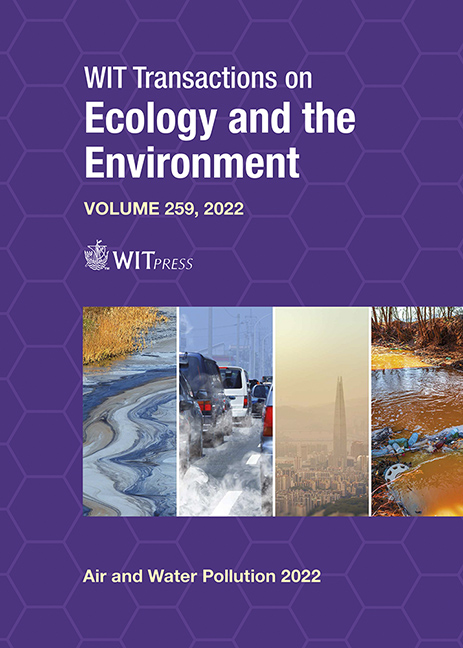IMPORTANCE OF COMPREHENSIVE HEALTH RISK ASSESSMENT PROCEDURES FOR MODERN WASTE-TOENERGY FACILITIES IN COMPLEX GEOGRAPHICAL CONTEXTS ORIENTED TO CIRCULAR ECONOMY
Price
Free (open access)
Transaction
Volume
259
Pages
11
Page Range
53 - 63
Published
2022
Paper DOI
10.2495/AWP220051
Copyright
Author(s)
ELENA CRISTINA RADA, MARCO TUBINO, MARCO SCHIAVON, LUCA ADAMI
Abstract
Although circular economy (CE) principles set material circularity, resource efficiency and waste recycling as priority targets to guarantee the sustainable development of future generations, the thermochemical valorisation of municipal solid waste (MSW) still plays a fundamental role in the transition towards the final CE targets. As a matter of fact, the waste-to-energy (WtE) sector allows recovering energy from waste, reducing the pressure on MSW landfills and their related potential environmental impacts; however, recovering material for further uses is not excluded in WtE options. Significant improvements have been achieved in the air pollution control of exhaust gases from direct and indirect MSW combustion during the last decades. The efforts focussed on reducing dioxin emissions especially, and this has let other substances emerge as priority pollutants (e.g., heavy metals). In addition, the location of WtE facilities in certain geographical contexts is still potentially critical from the point of view of human exposure and the related health risk; moreover, the public acceptance of WtE plants is still limited, in spite of their recent role in fighting SARS-CoV-2 risks from waste management. The purpose of the present paper is to underline the importance of implementing correct and complete health risk assessment procedures tailored to the exposed population living in the area of influence of a WtE plant. The paper will present two case studies regarding the projects of two WtE plants in a mountainous region, highlighting the critical issues that arose during the environmental impact assessment procedures. The paper will finally suggest possible options to improve the health risk assessment procedure and alternative measures to reduce the expected impacts of the WtE sector on the environment and human exposure.
Keywords
air pollution, cancer risk, circular economy, emissions, environmental impact assessment, heavy metals, human exposure, incineration, gasification




